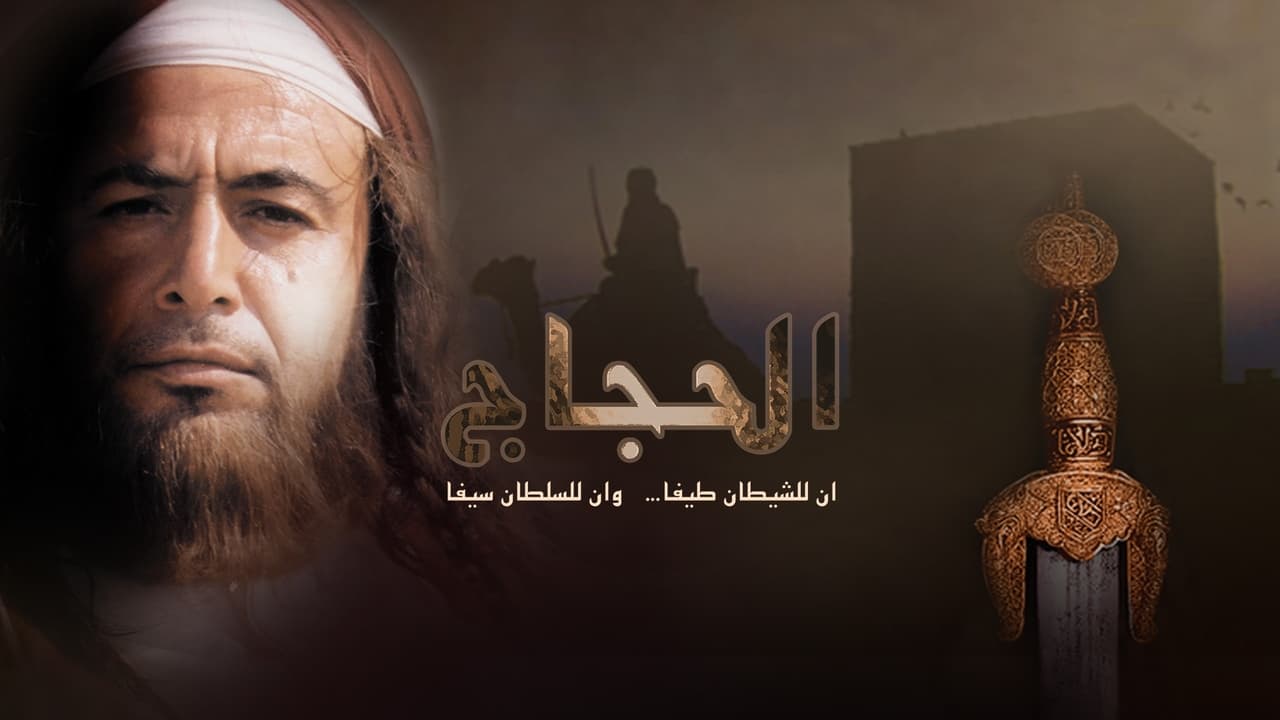Al Hajjaj Season 1
With 30 Day Free Trial!
Al Hajjaj
2003
This biography of Al Hajjaj Bin Youssef Al Thaqafi looks back on his cruelty, his clemency and his loyalty, and paints the portrait of a controversial regent.
Watch Trailer
With 30 Day Free Trial!
Al Hajjaj Season 1 Full Episode Guide
Al-Hajjaj kills Said bin Jubeir for disobeying him in years past to the dissatisfaction of the Caliph Al-Walid bin Abdul Malik and his inner circle. Al-Hajjaj dies after successfully establishing the Umayyad caliphate on a strong basis free of conflict and strife.
Yazeed flees to Damascus after his sister Hind was able to help him accompanied by her maid and the prison guard. Al-Hajjaj's attempts to return Yazeed to prison fail and he issues an order to kill all those who were guarding Yazeed's cell the night he escaped.
Al-Hajjaj's fear for himself causes him to imprison Yazeed ibn Al-Muhalab after a fortune teller predicts his death at the hand of someone named Yazeed. Al-Hajjaj tortures Yazeed and imprisons him without him knowing the reason, to Hind's (his sister) discontentment of her husband's actions.
The Umayyad Caliph Abdul Malik bin Marwan dies, having built a strong Umayyad State with the help of Al-Hajjaj, making his son Al-Walid caliph after him upon the consensus of his inner circle. Al-Walid keeps Al-Hajjaj in his position to achieve great accomplishments.
Al-Hajjaj returns to Basra following his victory against Ibn Al-Asha'th in the Deir Al-Jumajum region after the Caliph supplies him with an impressive army. Ibn Al-Asha'th is killed following his escape from Al-Hajjaj's army after Zumbil betrays him having been bribed by Al-Hajjaj.
Ibn Al-Asha'th disobeys Al-Hajjaj and goes against oath of allegiance to the Umayyad Caliph after allying with his enemy Zumbil. Ib Al-Asha'th seizes the Iraqi city following Al-Hajjaj's exit to the Ziwaya region to prepare an army in response after his rebellion.
Ibn Al-Asha'th prepares to fight the Turks led by their king Zumbil, spilling the blood of many Muslims in the attack. Al-Hajjaj wishes to build a city, Wasit, to be the centre of his governance, establishing it after his marriage to Hind, daughter of Commander Ibn Al-Muhalab.
The Umayyad State finds stability after Al-Hajjaj is able to suppress and eliminate the sedition of the Kharijites following the murder of their commander Al-Shaibani. Al-Hajjaj places Ibn Al-Asha'th in control of Sajestan after coming to know of his wisdom and intelligence, with Ibn Al-Muhalab taking control of Khorasan.
The Kharijites under the command of Al-Shaibani invade Kufa with Al-Hujjaj triumphing over them following the killing of Al-Shaibani's wife Ghazaleh after she fails to kill Al-Hajjaj. Ibn Al-Muhalab is victorious over the Kharijites in Kurman and Tabaristan, upsetting their interests after the murder of their commander Al-Qatri.
Al-Hajjaj is victorious over Abdullah bin Jaroud and his tribe after they betray the loyalty of the Caliph Abdul Malik, going against the oath they made to him. Sakina bint Al-Hussein refuses to get engaged to the Caliph Abdul Malik due to the hostility between herself and the Umayyads following the murder of her husband.
The people of Kufa and Basra unite in their ranks hasty to join the army of Ibn Al-Muhalab in the Ahwaz, fearing the brutality of Al-Hajjaj against them. Abdul Malik appoints his son Al-Walid as Caliph after him upon the death of his brother Abdul Aziz.
The people of Mecca make use of the Caliph's arrival during the Hajj season, disclosing their wish to expel Al-Hajjaj from Mecca and the Hijaz to him. The Caliph complies with their wishes and puts Al-Hajjaj in charge of Iraq after turmoil and strife erupts there.
The people of Mecca plan to remove Al-Hajjaj from the governance of Mecca after his oppression of them is exacerbated. Al-Hajjaj leaves the city to get engaged to Sakina bint Al-Hussein, despite him having killed her husband Mus'ab. Sakina insults Al-Hajjaj and refuses him in front of Tareq bin Amr.
Al-Hajjaj displays the body of Abdullah bin Al-Zubeir and crucifies it before sending his head to the Umayyad caliph to the grief of his mother Asma' bint Abi Bakr. Al-Hajjaj insists on insulting the body of Abdullah by keeping it suspended in the air until the Caliph orders it to be taken down.
The siege on Mecca comes to an end after Abdullah bin Al-Zubeir and Yousef Al-Thaqafi, father of Al-Hajjaj are killed, after Al-Hajjaj's soldiers storm the Haram and kill those who took refuge there. The people of Mecca swear allegiance to the Caliph Abdul Malik bin Marwan fearing the wrath of Al-Hajjaj.
The Islamic empire is in turmoil after Al-Hajjaj bombards and destroys Mecca. Caliph Abdul Malik resents Al-Hajjaj's bombardment of Mecca having not permitted him to do such. Al-Hajjaj enters Mecca and Abdullah insists on fighting to be martyred in the Holy Haram.
Al-Hajjaj begins his attack on Mecca after bombarding it with flaming rocks to the panic and fear of the civilians. Some of the people leave Mecca after Al-Hajjaj grants them safety with him. The people of Al-Zubeir seek safety after abandoning their father.
Al-Hajjaj's attempts to make peace with Abdullah fail after the latter refuses to comply with the Caliph's order to step down from his control of Mecca and any mandate he has in the Islamic empire. Al-Hujjaj sends a letter to the Caliph requesting permission to invade Mecca.
The people of Mecca panic at the sight of the catapults after their installation in the mountains. Al-Hajjaj is persistent in his pursuit to kill anyone who betrays him of the Caliph Abdul Malik bin Marwan to the discontent and anger of his brother Muhammad for spilling the blood of Muslims.
The people of Basra abandon Ibn Al-Muhalab, returning to Basra promising that they will return any attack made against them. Khaled bin Yazeed bin Ma'awiya becomes angry after Al-Hajjaj Al-Thaqafi does not allow him to enter Mecca to get engaged to Ramla, sister of Abdullah bin Al-Zubeir.
Al-Hajjaj tightens the siege upon the people of Mecca after his soldiers take control of the Maimoun well, cutting off water to Mecca, Abdullah's troops failing to restore it. Al-Qatri victories over Ibn Al-Muhalab after the latter falls to him ambush on the outskirts of Kerman.
Yousef Al-Thaqafi joins Abdullah bin Al-Zubeir after his son refuses to abandon Al-Hajjaj on his campaign to Mecca. Al-Hajjaj's troops are triumphant over Abdullah's soldiers to the concern and fear of the latter. Al-Hajjaj builds catapults, taking them into the mountains around Mecca.
Caliph Abdul Malik begins the arabisation of bureaucracy and currency as pointed out by Al-Hajjaj. Al-Hajjaj plans to lay siege to Mecca and crack down on its people after Abdullah's soldiers are victorious in the battle that occurs on the outskirts of Mecca.
Yousef Al-Thaqafi and his son Muhammad's attempts to discourage Al-Hajjaj from attacking Mecca fail after Al-Hajjaj is determined to unite the Muslims. Commander Ibn Amr grants safety to the people of Abdullah bin Al-Zubeir to return to Mecca after taking control of the city.
Bishr complies with the order of the Caliph to send the Iraqi troops under the command of Ibn Amr to join Al-Hajjaj in his campaign to Mecca despite his discontent with Hajjaj's actions. Abdullah incites the people of Mecca against the Umayyads, calling on them defend against him.
Caliph Abdul Malik sends a campaign to the Hijaz under the command of Al-Hajjaj to bring an end to the rule of the people of Al-Zubeir and to unite the Muslims under one banner. Bishr is angry at Al-Hajjaj after the latter refuses to enter Kufa to include the troops of Iraq in his campaign.
Caliph Abdul Malik bin Marwan returns to Damascus victorious after appointing Khaled and his brother Bishr control over Iraq. Al-Muhalab's army is victorious over the commander Al-Qatri Al-Mazeni after the division of the Kharijites, most of them joining the command of Shabib Al-Shaibani.
Musa'b bin Al-Zubeir is killed after the victory of Caliph Abdul Malik bin Marwan's army against him. The Umayyad caliph sends his head to his brother Abdullah in Mecca. The Caliph abandons Al-Hajjaj after he refuses to appoint him control over Iraq despite his strong loyalty to him.
Caliph Abdul Malik goes to the head of his army to fight Musa'b bin Al-Zubeir in Iraq accompanied by Al-Hajjaj. Ibn Al-Muhalab is victorious over the Kharijites and their commander Al-Qatri Al-Mazeni after they topple the arbiter in Basra to the Al-Qatri's astonishment.
Caliph Abdul Malik sends Al-Hajjaj to Zafar bin Al-Harith to make peace, bribing him with money in preparation for the Caliph to leave with his army to Iraq. Al-Shaibani returns to the Ahwaz without a fight after the people of Basra betray the support of their leader.
Ibn Al-Muhalab is concerned about the complacency of the people of Basra and their reliance upon him in his war against the Kharijites despite him not having any soldiers. Al-Qatri leaves and follows him to raid Basra. Caliph Abdul Malik begins to prepare his soldiers to fight Mus'ab in Iraq.
Abdullah bin Al-Zubeir appoints Ibn Al-Muhalab to Basra after he is brought in from Khorasan to suppress the sedition of the Kharijites upon their installation of Al-Qatri Al-Mazeni as their imam and their expansion in the country. Caliph Abdul Malik prepares his soldiers to fight Musa'b in Iraq.
Al-Hajjaj achieves his goal by meeting the Caliph Abdul Malik after the Caliph wishes him to take control of the soldiers despite his recent appointment within the palace. Musa'b bin Al-Zubeir is victorious over Al-Mukhtar Al-Thaqafi, killing him after he goes against his obedience and his oath of allegiance.
Caliph Abdul Malik bin Marwan's kills Amr bin Said bin Al-Aas after his arrival in Damascus despite granting him safety, the public coming out against his treachery. Commander Rouh bin Zunba'a Al-Hujjaj is appointed over the Caliph's soldiers after his enthusiasm is appreciated.
Al-Hajjaj Al-Thaqafi leaves Ta'if towards Damascus, capital of the Umayyads after Abdullah bin Al-Zubeir's soldiers attack and insult him. The Caliph Abdul Malik bin Marwan is determined to unite the Muslims after their division between himself and Abdullah bin Zubeir in Mecca.
Free Trial Channels
Seasons































